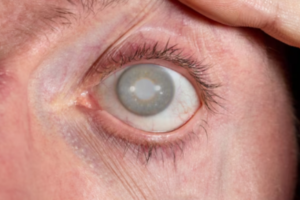
Navigating life with seasonal allergies can be tough. Add Seasonal Affective Disorder (SAD) to the mix, and it gets even harder. An allergist plays a crucial role in managing these conditions. Allergists have the skills to address both physical and emotional symptoms. They craft personalized care plans for each person. Centers like irvine allergy and immunology focus on comprehensive care. They address both allergies and mood-related challenges. This dual approach helps improve well-being and quality of life. Understanding the role of an allergist is the first step to effective treatment.
Why Allergies Matter
Allergies can cause a range of symptoms. These include sneezing, itching, and watery eyes. They may seem trivial, but they can disrupt daily life. Allergies can lead to fatigue and poor concentration. This makes tasks feel overwhelming. An allergist identifies specific triggers and offers targeted treatments.
Understanding Seasonal Affective Disorder
Seasonal Affective Disorder is a type of depression. It occurs at the same time each year, often in winter. Symptoms include low energy, sleep problems, and mood changes. An allergist recognizes how allergies can worsen SAD symptoms. Treating allergies can help ease mood-related symptoms.
The Allergist’s Approach
An allergist uses a comprehensive approach. This includes:
- Identifying allergy triggers through testing.
- Creating a personalized treatment plan.
- Monitoring progress and adjusting treatments as needed.
They also work with other healthcare providers. This ensures a holistic approach to both allergies and SAD.
Table: Common Allergy Triggers and Treatments
| Allergy Trigger | Treatment Option |
| Pollen | Antihistamines |
| Dust Mites | Nasal Steroids |
| Pet Dander | Allergy Shots |
Combining Treatments for Better Results
Combining treatments can enhance outcomes. For instance, managing allergies may lessen SAD symptoms. This integrated approach targets the root of both issues. An allergist ensures that treatments work in harmony.
It’s important to note the role of lifestyle changes. Regular exercise and a healthy diet support overall health. Simple adjustments can make a big difference in managing symptoms.
The Benefits of Early Intervention
Treating allergies early can prevent complications. It also improves quality of life. Recognizing the signs of SAD and starting treatment early offers the best chance for improvement. An allergist helps in both diagnosis and treatment. They provide guidance and support every step of the way.
Conclusion
Understanding the link between allergies and Seasonal Affective Disorder is key. An allergist plays a vital role in managing both conditions. They offer personalized care that addresses each individual’s needs. By identifying triggers and offering tailored treatments, allergists improve both physical and emotional well-being. Engaging with professionals contributes to better health outcomes. Early intervention and a comprehensive approach are essential. This ensures a brighter, more comfortable future free from the burdens of allergies and SAD.














